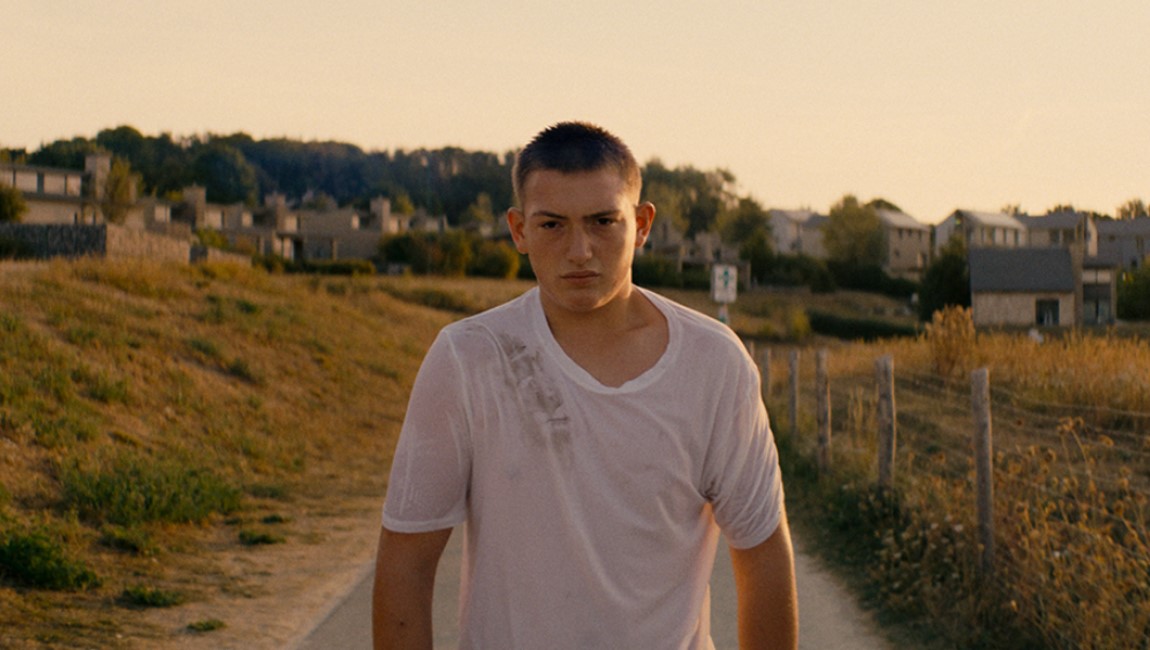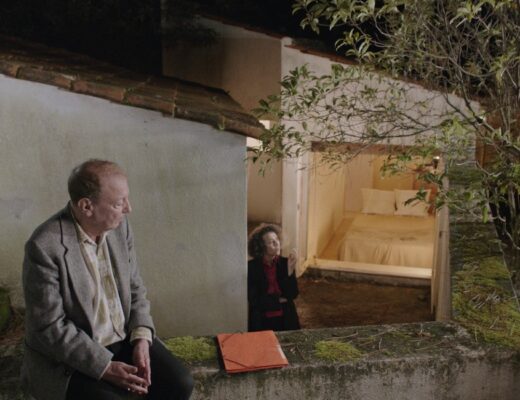Belgian director Paloma Sermon-Daï’s 2020 documentary film Petit Samedi profiled her own family, paying particular attention to her brother and his drug addiction. Her debut narrative feature, It’s Raining in the House, shifts focus, instead considering the way that children are forced to cope with a mother (Louise Manteau) who’s absent and unreliable for reasons that are never clearly articulated. Seventeen-year-old Purdey (Purdey Bloquiau) and her 15-year-old brother Mak (Makenzy Lombet) have typical sibling conflicts, such as Mak not keeping the house tidy or Purdey not answering Mak’s calls. But there is a firm bond between them, because essentially, they’re all each other has.
Whether speaking with a real estate agent or a prospective employer, Purdey must continually emphasize that she will be eighteen “in just a few days,” because it’s up to her to see her family through until their mother deigns to return from wherever she may be. Purdey, and to a lesser extent Mak, being thrown headlong into an uncertain adulthood is the primary theme of It’s Raining in the House, which takes its title from a broken skylight above Purdey’s room, an otherwise major problem (in most lives) here depicted as just another lingering crisis. To its credit, the film mostly deemphasizes the various troubles the kids face, since they are fairly ordinary for this poor family, even in the best of times.
In fact, Sermon-Daï gives greater significance to the interpersonal and psychological problems the siblings are grappling with even as they struggle to survive. Purdey must take a job as a hotel cleaner, putting her ambitions on hold. She wants to study nursing, and her judgmental, upper-middle-class “boyfriend” (Amine Hamidou) — who already keeps their relationship a secret — tells her she will amount to nothing and is not good enough for him. Mak, meanwhile, has just failed out of school, and spends the summer fencing stolen bikes with his slightly better-off friend Dono (Donovan Nizet). Although Sermon-Daï never spells it out, Mak’s anger issues may owe as much to anxiety about his sexual identity as they do to his mother’s indifference.
Although It’s Raining in the House appears, stylistically, indebted to the Dardennes, Sermon-Daï’s approach is very different. Where the Belgian brothers’ narratives tend to be rather propulsive, It’s Raining in the House is languid, at times even a bit inert. The essentials of its story will call to mind other, better films, such as Hirokazu Kore-eda’s Nobody Knows or, perhaps more closely, Ursula Meier’s Sister. But where those films seemed intent on dramatizing their young characters’ plights as signs of egregious neglect, Sermon-Daï merely observes, as if to suggest that there’s nothing that surprising about kids left to fend for themselves. And sadly, that may be true.
Published as part of InRO Weekly — Volume 1, Issue 21.5.







